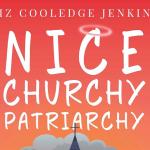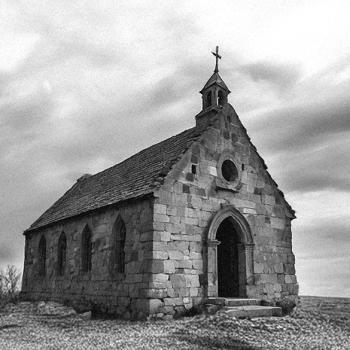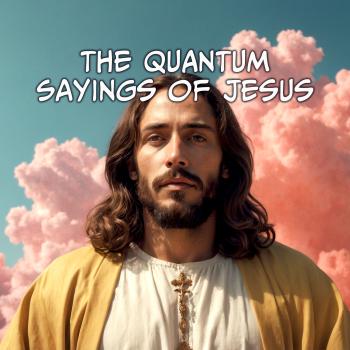
Ever felt like your faith is a never-ending road trip? One filled with twists, wrong turns, and course corrections? If so, buckle up for a ride through Fowler’s stages of faith development via the lens of deconstruction. Let’s see how faith evolves—or in some cases, evaporates completely. Whether you’re in a spiritual crisis or simply questioning long-held beliefs, let’s navigate that messy, winding road of changing faith together.
The theory was developed by James W. Fowler, a theologian and developmental psychologist. Fowler’s Stages of Faith outlines a progression of faith development from infancy through adulthood. His framework provides a broad, imperfect view through which we can understand how faith matures, transforms, or deconstructs over time.
Primal Faith – Ignorance is Bliss
In the beginning, we have the primal stage of faith, also known as Stage 0. This stage takes place from birth to around two years old when an infant’s sense of trust and safety is formed. Imagine a baby, blissfully unaware of the complexities of life, trusting everyone and everything. In this stage, babies rely entirely on caregivers, viewing them as omnipotent beings who provide and protect.
Think of this as the untouched wilderness before doubt starts finds its way in. There’s no skepticism here, just a blanket of trust. This primal faith is built on the bond of love and care, forming the foundation for all future stages.
At this stage, Fowler emphasizes the development of trust based on the consistency and responsiveness of caregivers. It’s less about cognitive understanding and more about the emotional and relational groundwork. This raw, instinctual trust is a far cry from the complexities that come later. The deconstruction process is barely a glimmer on the horizon, but the seeds are being sown.
Intuitive-Projective Faith – Fairy Tale Land
Now onward to the world of imagination, where Bible stories are as real as your imaginary friends. At Stage 1, known as Intuitive-Projective Faith, children blend reality with fantasy. From ages 2 to 7, Noah’s Ark, Jonah’s whale are all taken at face value. It’s a magical time when Santa, the Tooth Fairy, and Jesus all share equal billing.
During this stage, children are highly impressionable and absorb stories and images from their environment. It’s all rainbows and unicorns until you start asking pesky questions. This is where the first cracks might appear. Why doesn’t the world work like the stories said it would?
This stage is a cultural melting pot, where stories shape young minds. However, let’s not ignore the cultural bias at play here. These tales are often simplistic and literal, setting the stage for future doubts as children grow and begin to see inconsistencies between the stories and their experiences.
Mythic-Literal Faith – Literal Interpretations
Stage 2 is where kids hit the literal phase, known as Mythic-Literal Faith. This stage typically occurs from ages 7 to 12. Everything is black and white, right and wrong. Jonah lived in a fish, period. Miracles are factual events, and parables are historical accounts. This is the “Because the Bible says so” phase.
In this stage, children start to make sense of the world through stories, which they interpret literally. Their understanding of faith is based on concrete thinking, where religious narratives are seen as true and historical. The simplicity and clarity of these stories provide a sense of security and structure.
However, literal faith is easy to challenge. The journey of deconstruction often picks up speed here. Once you start questioning the literal interpretations, it’s a slippery slope to deeper doubts.
The rigidity of this stage is glaring. Social and contextual factors often lock people into these literal interpretations, making it hard to break free without a push. As children grow, they encounter new information or experiences that conflict with their literal beliefs. This leads to critical questioning and potential deconstruction.
Synthetic-Conventional Faith – Peer Pressure Paradise
Next comes adolescence. Here faith is more about fitting in and seeking approval than genuine belief. In Stage 3, known as Synthetic-Conventional Faith, you believe because your parents, pastor, or that cute girl in youth group believe. This stage is typically seen in teenagers is basically faith by osmosis.
Adolescents internalize the beliefs and values of their community without critically examining them. It’s a patchwork of other people’s beliefs, stitched together to create a sense of identity and belonging.
Deconstruction often ignites here when you realize your faith is a merely other people’s beliefs. The peer pressure can’t hold up forever against genuine questioning. When faced with new ideas or environments, the adolescent begins to question the beliefs they’ve adopted, leading to potential doubts and re-evaluation of their faith.
Fowler acknowledges that faith in this stage is not just an individual journey but is heavily influenced by community and culture. However, the emphasis on conforming to social norms can sometimes obscure the deeper, personal exploration of faith. As the community shifts, so does your faith, highlighting the dynamic interplay between personal belief and social context.
Individuative-Reflective Faith – Existential Crisis Zone
Now, stage 4 is where the real fun begins. This is the phase known as Individuative-Reflective Faith, usually starting in young adulthood. You’ve questioning everything you’ve ever believed. College hits, and suddenly, it’s time to wrestle with the big questions—preferably over a late-night pizza.
In this stage, individuals begin to critically examine the beliefs they’ve inherited. This is prime deconstruction territory. It’s messy, confusing, and absolutely necessary for genuine faith development. Here, the faith journey becomes more personal and less dependent on external authorities.
Fowler emphasizes the importance of cognitive dissection here. But faith isn’t just about ideas – it’s also about emotions and relationships. You might feel detached from previous communities as you critically evaluate their teachings and form your own understanding.
The challenge of this stage is balancing the critical examination with emotional and relational aspects of faith. While it’s crucial to question and understand, it’s equally important to recognize the role of personal experiences and relationships in shaping your beliefs.
Conjunctive Faith – Embracing Complexity
Congratulations, you’ve made it to Stage 5. Conjunctive Faith is the place where paradoxes no longer freak you out. This stage typically begins in mid-life, when you’ve seen enough of life to understand that truth isn’t black and white; it’s more like a mosaic of complex patterns. You’ve experienced the highs and lows, and now you’re okay with life’s gray areas. This stage involves a deeper awareness of the contradictions and mysteries of life and faith, and a recognition that these do not need to be resolved for faith to be meaningful.
Getting here requires recognizing the limitations of previous stages and embracing a broader view. You understand that earlier stages of faith, were just steps along the journey. Fowler’s model highlights the cognitive shifts, but it doesn’t always account for the emotional resilience needed to reach this point. Embracing complexity often means coming to terms with past struggles and integrating them into a nuanced and mature faith.
At this stage, faith becomes more inclusive and open. It’s about finding harmony in diversity and being comfortable with ambiguity.
Universalizing Faith – Enlightenment Achieved
Few people reach Stage 6, the apex of faith development – Universalizing Faith. Universal compassion and selfless love define this stage. You’ve transcended the petty squabbles of earlier stages and see the big picture, focusing on the common good and the well-being of all.
The ultimate goal of deconstruction is here—a universal, compassionate, and selfless outlook on faith. This stage involves a profound understanding and embodiment of love and justice, seeing beyond individual and group differences to the interconnectedness of all life. It’s an ideal to strive for, even if few achieve it.
Very few reach this stage, and it may seem idealistic or impractical to many. But it’s a worthy aspiration. Those who do reach this stage often become transformative figures in their communities, inspiring others through their profound wisdom and boundless compassion.
Reaching this stage requires not only cognitive and emotional growth but also a deep spiritual transformation. It involves integrating all previous stages and experiences into a coherent, inclusive, and deeply compassionate worldview. While Fowler’s model highlights the developmental aspects, the journey to this stage is also about profound spiritual and moral evolution.
Faith is a wild ride, and Fowler’s stages give us a map, albeit an imperfect one. Wherever you are, remember that faith is personal, messy, and ever-evolving. Some embark on this journey early in life, while others might not begin questioning until later years. And let’s not forget those who choose to opt out entirely, finding their paths outside traditional faith frameworks or outside of faith altogether. Deconstruction is just part of the journey for many, a necessary detour to deeper understanding or a complete reimagining of belief.
Whether you’re navigating the twists and turns of faith for the first time, revisiting old paths with a new perspective, or stepping away from faith altogether – your journey is valid and worth exploring.
For more Snarky Faith, check out the podcast:

















